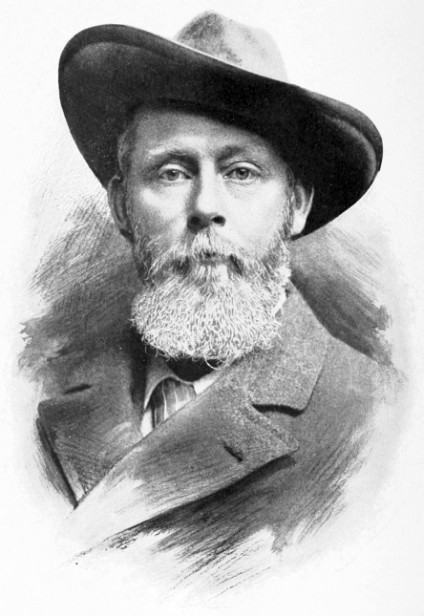Established by Edward L. Youmans
APPLETONS'
POPULAR SCIENCE
MONTHLY
EDITED BY
WILLIAM JAY YOUMANS
VOL. LVI
NOVEMBER, 1899 TO APRIL, 1900
NEW YORK
D. APPLETON AND COMPANY
1900
Copyright, 1900,
By D. APPLETON AND COMPANY.
 FREDERICK C. SELOUS.
FREDERICK C. SELOUS.APPLETONS' POPULAR SCIENCE MONTHLY.
DECEMBER, 1899.
EXACT METHODS IN SOCIOLOGY.
By FRANKLIN H. GIDDINGS, Ph. D.,
PROFESSOR OF SOCIOLOGY IN COLUMBIA UNIVERSITY.
Those who do pioneer work in science encounter not onlythe inherent difficulties of research and interpretation, butalso the misapprehension of certain educated men whose distinctivegift is a fatal genius for applying false standards of measurementto the progress of thought. Seizing upon some branch ofknowledge that is in a state of vigorous development, when itsnewer results are out of harmony with its earlier hypotheses, suchcritics love to point out these contradictions, and try to prove thatthe branch in question is no science at all, and that its teachersare hardly worthy of respectful consideration.
The history of science contains many interesting chapters pertainingto this kind of criticism and the fate that has invariablyovertaken it. When Copernicus and Galileo showed the absurdityof the Ptolemaic astronomy, the theologians enjoyed themselvesfor a time, as they demonstrated—to their own entire satisfaction—thefolly of all rationalistic attempts to explain what revelationonly could make clear. When Darwin explained the origin ofspecies through variation and natural selection, the pretensions ofbiology were completely exploded by its lay and clerical critics(they thought and said so) by the extremely simple device of the"deadly parallel column." Was not Cuvier a great anatomist,and had he ever taught this nonsense about the mutability of species?Was not Agassiz the most learned naturalist alive, and whathad he to say about Darwinian vagaries? Had he not proved,over and over again, that the very concept of the species was the[Pg 146]notion of a group of characteristics that could not possibly changeor be changed from generation to generation? In more recentyears we have again seen the same method of reducing scienceto a variety show for the entertainment of the tired general readerapplied to both biology and psychology. Weismann has tried toprove that acquired characteristics are not transmitted in heredity,and that the germ plasm is distinct from the somatic cells. Theneo-Lamarckians, Spencer, Cope, and some of the botanists havecontended for the older interpretation. Is biology, then, a science?Forbid the thought! Heaven preserve our minds fromsuch confusion!
If the sociologists have hoped that they alone might not beovertaken by easy annihilation, they deserve to be humiliated.But it is safe to say that they have cherished no such illusions.If the men who have devoted much time to the scientific explanationof society have had no other qualification for their task, theyhave at least shown some acquaintance with the history of thought